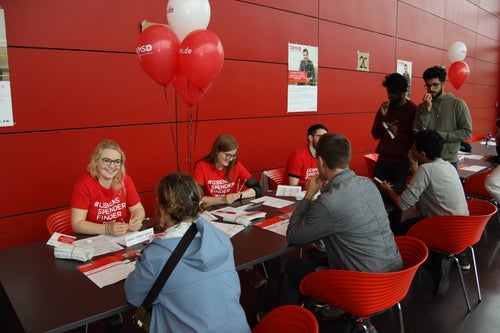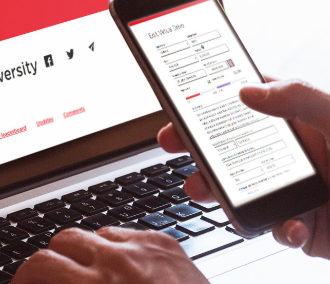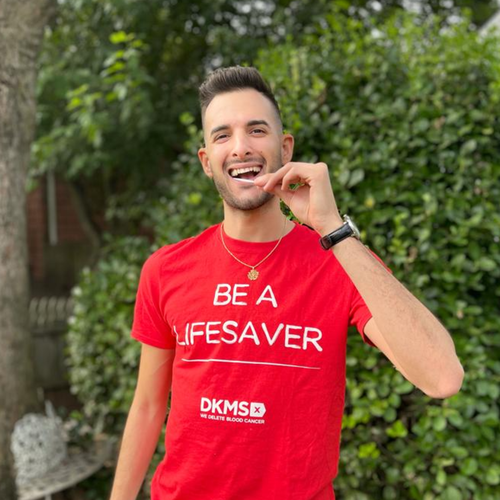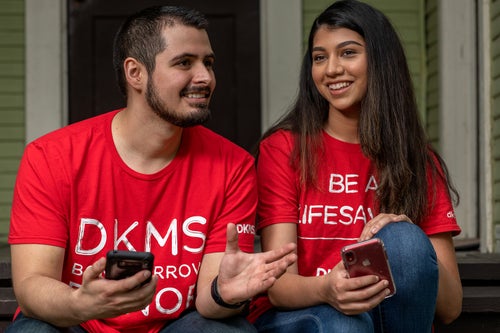How do I know that my data is secure?
As the world’s largest network of blood stem cell donor centers, DKMS has a special responsibility to protect the personal and especially sensitive medical data that registered donors entrust to us. We take data privacy very seriously. It goes without saying that we fully comply with all statutory requirements, but we have also committed to an even higher level of data privacy.
Your personal details are only handled by DKMS and our appointed service providers. Our commissioned data processing (CDP) agreements with service providers ensure they are all committed to upholding our highest data privacy standards. The data relevant to the stem cell donor search, such as HLA tissue characteristics, age, and gender, is always pseudonymized before we send it to other German and international search registers, such as the German National Bone Marrow Donor Registry (ZKRD) and the National Marrow Donor Program in the US (NMDP). This means that doctors and transplant centers searching the database for a matching donor are only able to see this information and your personal information remains only with DKMS.
At DKMS, we are committed to treating and using health information we may gather about you responsibly. This Notice of Privacy Practices (this “Notice”) describes the personal and health-related information we collect, and how and when we use or disclose that information. It also describes your rights with respect to such information. This Notice was last updated on May 26, 2020.
UNDERSTANDING YOUR HEALTH RECORD/INFORMATION
DKMS does not provide any medical services; however, we recruit healthy volunteers as potential hematopoietic stem cell (HPC) donors, and we facilitate medical services for the donation process. The information we gather helps hospitals that treat patients with life-threatening blood diseases make treatment decisions for their patients.
Our marketing and field-based recruitment teams may store and use information about patients and families with whom they have relationships, for example in connection with follow-up stories regarding those patients. Such information will only be used in accordance with the terms of this Notice. DKMS considers those who register to be potential donors to be “registrants,” and those who begin any part of the donation process to be “donors.” As a registrant, we obtain information from you such as your name, date of birth, gender, social security number, address, telephone numbers, email address, ethnicity and ancestry, family contact information and banking information (if you decide to donate to our cause). DKMS stores this information, and may share such information amongst its affiliated entities, some of which may be located outside of the United States. As a donor, each time you visit a doctor, hospital, laboratory, or any other health care provider, a record of your visit is made. Typically, this record contains your name, age, gender, address, telephone number, symptoms, examination and test results, and, if needed, a diagnosis, treatment, and plan for future care. Additionally, we store basic information about transplant recipients that is needed to facilitate HPC donations. This information, often referred to as your health or medical record, serves as a:
• Basis for planning your donation in a way that minimizes donor risk, and delivering HPC products to benefit transplant recipients.
• Means of communication among the many health professionals who contribute to your care and the treatment of patients.
• Legal document describing the care you received.
• Means by which you, DKMS, or a third-party payer can verify that services were actually provided.
• A source of data for medical research.
• A source of information for public health officials as required by local or federal law.
• A source of data for our planning and marketing.
• A tool with which we can assess and continually work to improve the care we render and the outcomes we achieve.
Understanding what is in your record and how your health information is used helps you to: ensure its accuracy, better understand who, what, when, where, and why others may access your health information, and make more informed decisions when authorizing disclosure to others.






